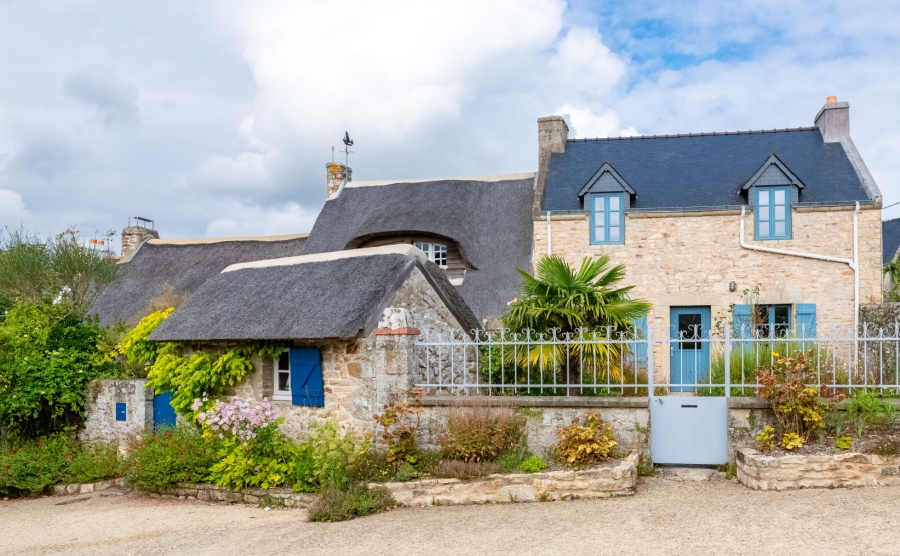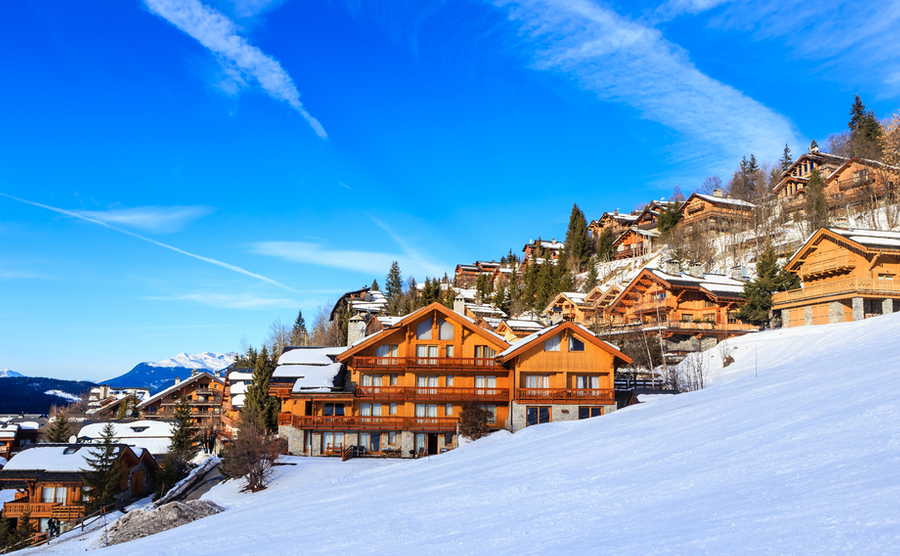For anyone buying a second home in France, you’re faced with the option to rent it out when you’re not using it. Not only will you be able to earn a bit of money, but doing so can also grant peace of mind, knowing your property isn’t sat empty.
Ideally properties need to pay for themselves and investing in a second home in France is something many people naturally consider, as long as it can bring in something of an income.
Many areas of France are popular year round, particularly in the south where the rental market is quite consistently buoyant.
Although it is still possible to rent out your second home short term or to list it on Airbnb and other short term rental platforms, you need to be aware of the rules and regulations which have tightened lately. A new law was voted in by the National Assembly in January 2024 and then passed by the Senate in the springtime aimed at better regulation of short term rentals.

A typical French home in Brittany, Ile aux Moins
Find homes in France via our property portal.
What classes as a short-term let in France?
In France, a short-term rental applies to properties let out for 90 days or less. In popular towns and tourist areas this is an excellent way of making money when you’re not using the property. However, a law has been drafted this year which makes it tougher for property owners to rent out their property for short term lets. The new law has support across all political parties and is designed to improve the letting market for tourists and holiday makers. It also gives mayors more power to regulate properties in their commune and thus help with the French housing problem.
What changed?
The main change affects tax relief on rental income. The present level is stands at 71% and this will be cut to 30%. The law also requires landlords to make each property they own available for long term housing. This would eliminate any tax advantage offered by short term rentals. This is expected to be implemented in early autumn, according to Short Term Rentalz.
What this effectively means is that there will be more power given to local authorities to enforce laws reducing short term rentals and increasing long-term rentals.
The rules regarding taxation of rental income can be rather confusing to say the least. Suffice to say that much depends on the location of the property and how much rent is charged. In many larger cities you will need to apply to your mairie for change of use for your property in order to be in line with the new rules.
Read more: What is your local Mairie and why is it important?
Which French cities have short-term letting restrictions?
The rule generally applies to cities with over 200,000 inhabitants. Certainly Paris, Lyon, Bordeaux, Marseille, Cannes, Nice and Toulouse all have a firm 120 day limit per year for anyone renting out their primary residence and a cap on earnings from rentals fixed at 23,000.
Marseille in particular has announced a novel way of improving the housing crisis. The mayor, Benoit Payan, has recently made a somewhat unusual proposal that property owners who wish to rent out their properties on Airbnb will be obliged to buy another property to rent out long term. He said:
‘I’m going to oblige anyone who wants to [rent out a property on] Airbnb to buy an apartment and put it up for long-term rental. I’m going to use everything the law allows me as a weapon… It’s going to make them stop wanting to make money off the people of Marseille.’
Other major French cities are adopting a similarly tough stance but it is still important to understand that local authorities are free to make their own rules.
How does this work with Airbnb?
Airbnb is just as popular in France as it is in the UK. It started in 2012 in France with Paris being the biggest “go to” destination in the country, closely followed by the Var department in Provence. According to some newspapers in France, Airbnb have slowly started to encourage people to rent out their homes as a vacation which has meant house prices have risen. Hence the new rules which are to some extent limiting how long you can rent out your property for.
But increasingly, the platform has moved away from people renting out their homes for short periods and towards those running it as a holiday business, which has in turn pushed up house prices for locals, particularly in cities such as Paris.
This has prompted officials to look over the rules and start to limit how long you can rent out your home. it is now necessary to register any property with the local authority and follow the particular rules each one has as the rules are not national ones but vary from place to place.
During the pandemic, there was obviously a real decline in people renting short term in most of Europe. However, figures show that more and more people have been renting in the last three years or so, particularly in Airbnb and other platforms such as TripAdvisor and Expedia. This increase added to the lack of housing available has also prompted the latest tightening of the rules generally.

If it’s a ski property you’re after, short-term lets are hugely popular with tourists
How to ensure you adhere to the rules
It is important to check everything over at your local mairie as the rules are different depending on the area you are in. In some communities, you will need to get a registration number which has to be displayed on any marketing you have for renting out your property. In larger cities, as mentioned earlier, you may even have to apply for a “change of use” permit.
Any earnings from short term rentals do need to be declared on your French income tax return too. If you are bringing in over €23,000 you need to register with the RSI which is basically the French social security system and pay contributions here. Our advice here is to consult a bilingual French accountant since there may in fact be advantages to joining the social security scheme since it tends to offer reduced rates of contributions after a certain fixed allowance.
Although the rules may have become rather more rigid, it can still be beneficial to rent out your property on a short term basis. As long as you keep your customers fully aware of the house rules as well as local regulations, keep all the documents you have such as rental agreements, tax declarations, registration information etc. and make sure that any marketing or advertising you do is in line with the legal status, you should be able to continue to rent your property out without too much stress.
Are the new restrictions applicable outside of France?
This overhaul of the short term rental market is not confined to France as many other European countries have been pondering changes also. Major tourist destinations such as Amsterdam and Barcelona are now imposing rules such as the need for property owners to obtain a permit for short term rentals or in some cases pay a tourist tax.
You might also like:











